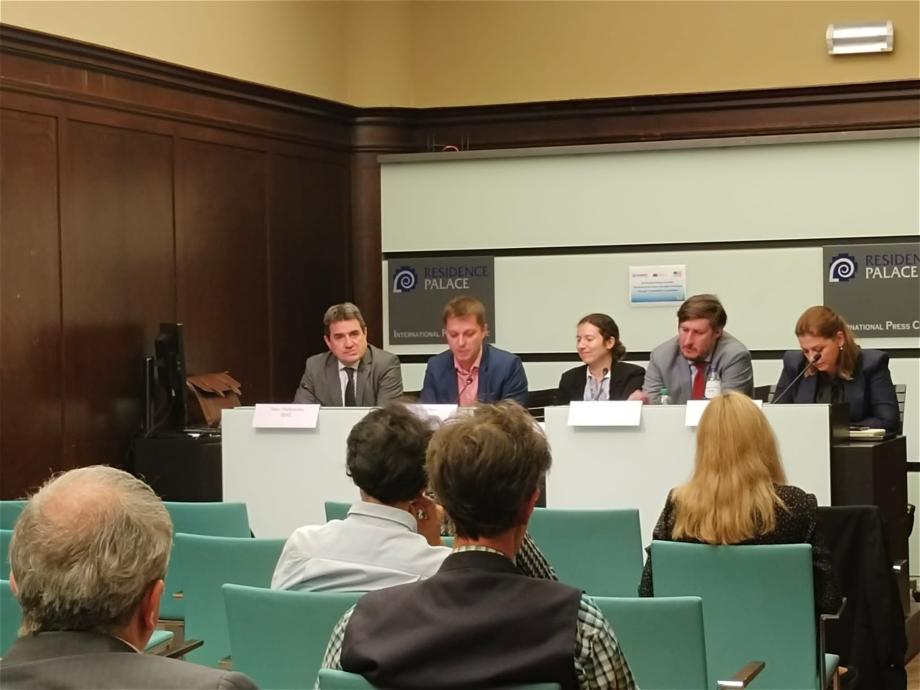GLOBSEC Brussels Event: Advancing Europe's Green Transition through Transatlantic Cooperation

On June 28th, Leonela Leca, Dimitar Lilkov, Tibor Stelbaczky, and Dominik Jankowski joined GLOBSEC in Brussels for a panel discussion on the future of transatlantic cooperation on energy security and the green transition. The discussion brought together policy shapers and experts with a wide range of expertise, allowing for a comprehensive analysis of the current state of European energy security and the prospects for cooperation with the United States (US) therein.
The event began with a brief presentation of the GLOBSEC-Clingendael report “REPower Security: Rethinking European energy relations in times of crisis” by Leonela Leca and Giulia Cretti. The report outlines how energy security must be viewed as a multilayered geopolitical challenge, and that decarbonisation must form the core of future EU policies. To achieve this vision, the current REPowerEU policy package must also prioritise energy diplomacy with the US and other states.
Subsequently, the panel discussion highlighted how Russia’s invasion of Ukraine has catapulted energy security back to the centre of European policy. While Russia’s weaponisation of energy hit Europe particularly hard, the EU remained resilient and could secure energy supplies, overcoming the challenges by reducing its consumption and turning to other sources, such as liquified natural gas (LNG), mainly from the US. Multiple panellists highlighted that while the increased use of fossil fuels in the past year resulted from an extraordinary emergency, Europe will likely remain reliant on LNG in the short- to medium-term. This is simply because existing infrastructure and consumption patterns cannot be transitioned to renewables overnight. Despite this significant obstacle, the EU should still be able to meet its climate goals while ensuring continued energy security.
The panellists discussed existing policies to strengthen energy security, as well as the potential areas in which there may be increased transatlantic cooperation and competition. The EU must not become solely reliant on a single country for energy supply but also on critical raw materials (CRMs) necessary for the green transition.
Cooperation with the US could help secure favourable supply contracts, facilitate innovation on renewable and green technologies, and allow the transatlantic partnership to increase the resilience of critical energy infrastructure. Within this final area, NATO plays an integral part and is already facilitating cooperation between both sides of the Atlantic, especially through its NATO-EU task force on critical infrastructure.
Another area for deeper transatlantic cooperation lies within the reconstruction of Ukraine and the green transition. Both the EU and the US can contribute with extensive investments and encourage more private-public partnerships.
A final area for increased cooperation, identified by the panellists, pertained to climate diplomacy and climate financing for a global green transition and against the risk of protectionist policies. The US and the EU must cooperate and take a unified position as global leaders. This will allow them to pool their substantial financial and diplomatic power to accelerate the global green transition, ensuring the future of Europe’s energy security.